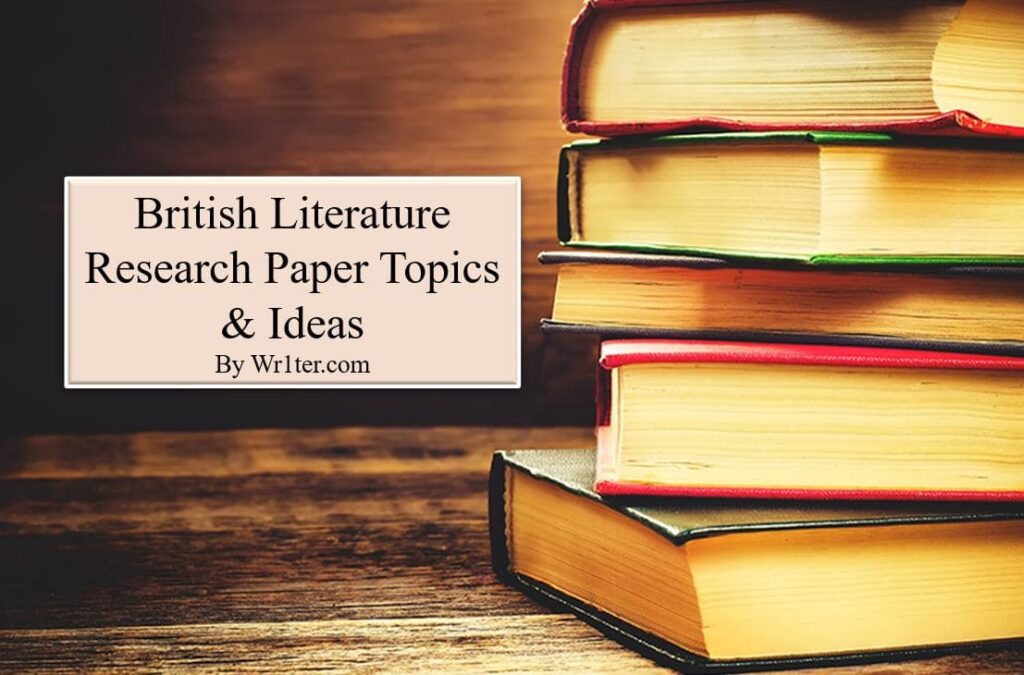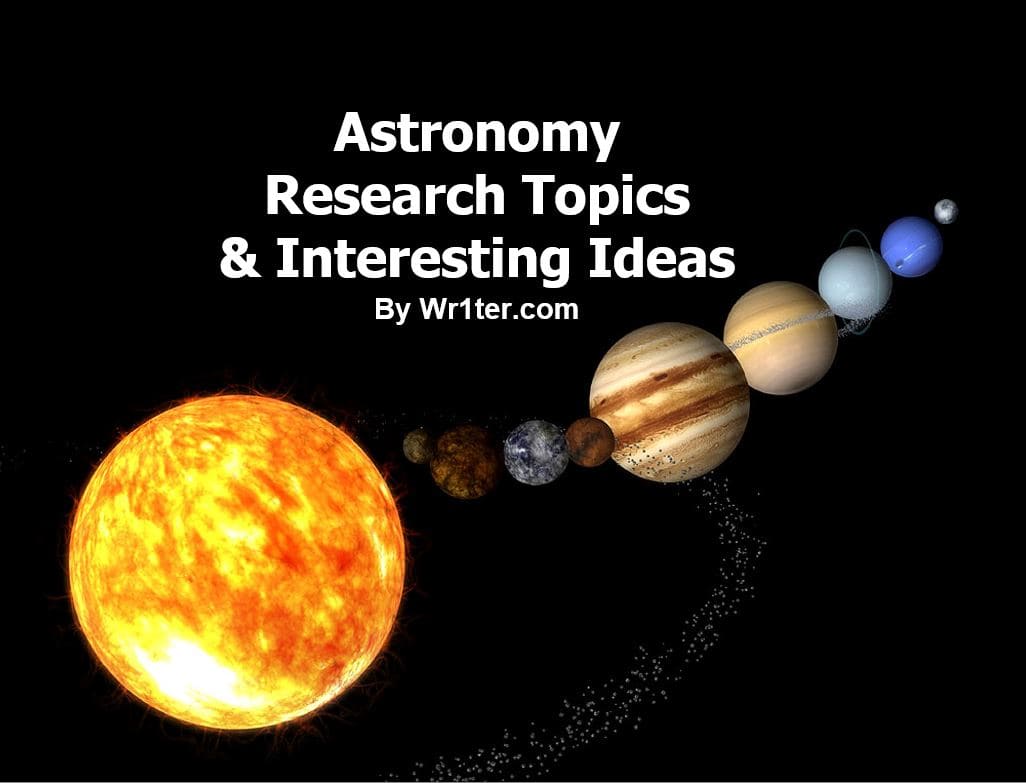British literature research paper topics include a wide spectrum of themes, offering rich exploration into diverse eras and genres. Different topics can delve into the Elizabethan Age’s sociocultural landscape, viewing the world through the lens of Shakespeare’s plays. The Romantic Period provides fertile ground for examining the works of Shelley, Wordsworth, or Keats in the context of nature and emotions. Dickens, Brontë, or Austen’s works illuminate the Victorian era’s intricate social structures and gender dynamics. Investigating the modernist movement, one might study the experimental narratives of Woolf or Joyce to understand how they integrate three parts of a thesis statement into their narratives. Postmodernist literature and its challenge to grand narratives can be a focal point with authors like Rushdie. British literature’s colonial and postcolonial narratives provide valuable insights into global power structures. Furthermore, exploring the intersections of literature with themes, like feminism, psychoanalysis, ecocriticism, and queerness, adds valid backgrounds to any research.
What Is a British Literature Research Paper Topic and Its Purpose
According to its definition, a British literature research paper topic is a specific theme or area of inquiry that focuses on diverse literary works, authors, and movements from Britain. For example, the main purpose for selecting a British literature research paper topic is to encourage an in-depth analysis of a chosen subject, fostering a greater understanding of its historical, social, and literary significance (Kohlmann, 2021). Basically, common ideas can range from examining specific literary periods, such as the Romantic era or the Victorian period, to analyzing the works of prominent authors, like William Shakespeare, Jane Austen, or Virginia Woolf. Further on, through this exploration, students critically engage with an observed text, providing new interpretations and perspectives (P. Manyak & A. Manyak, 2021). In principle, diverse themes not only contribute to an academic discourse surrounding British literature but also enhances a reader’s appreciation for key complexities of literary works. Moreover, engaging with these subjects promotes deeper literary analysis, encouraging students to explore underlying themes, like power dynamics, social norms, or moral philosophies (Thexton et al., 2019). Thus, British literature research paper topics aim to cultivate critical thinking, intellectual inquiry, and scholarly discussion, allowing students to contribute valuable insights and ideas to a field of literary studies.

How to Choose
Choosing a good British literature research paper topic requires a careful evaluation and analysis of various factors to ensure a selected theme is both engaging and academically valuable. For example, students should narrow a focus to a specific time period, author, or literary movement, such as the Renaissance or the Victorian era, to maintain a clear and manageable scope (Harner & Courtney, 2020). In principle, they should evaluate a relevance and significance of a selected subject within a broader context of literary studies, ensuring a central theme contributes meaningfully to existing scholarship. Further on, selecting a British literature research paper topic that allows for critical analysis rather than merely summarizing texts fosters deeper engagement and intellectual inquiry (Greenblatt et al., 2024). As such, students should consider their own interests and expertise, choosing a subject that not only aligns with their academic goals but also stimulates curiosity and passion for a theme. Moreover, people should assess an availability of credible sources and scholarly materials to support an entire study or analysis (Bump, 2022). Basically, ideas should be flexible enough to allow for a development of original arguments and perspectives. In turn, some steps for picking a good British literature research paper topic include:
- Identify a Specific Literary Period or Author: Narrow down a focus to a particular era, such as the Romantic period, or an influential author, such as Shakespeare, to ensure a manageable scope.
- Assess a Relevance of a Topic: Choose a subject that contributes meaningfully to existing literary scholarship and offers room for critical analysis.
- Align With Personal Interests: Select a theme that excites and motivates further study, and this personal interest often leads to more engaged and thorough research.
- Ensure Availability of Scholarly Sources: Verify that there are sufficient academic materials and credible resources available to support in-depth research and analysis.
- Consider Originality and Flexibility: Opt for a relevant British literature research paper topic that allows for unique insights and can be adjusted as research progresses, fostering a development of new perspectives.
Top British Literature Research Paper Topics
- Narrative Techniques in “Lord of the Flies” by William Golding
- Embracing the Gothic: Examination of “The Castle of Otranto” by Horace Walpole
- Poetic Devices in “Songs of Innocence and Experience” by William Blake
- Social Commentary in “Hard Times” by Charles Dickens
- Virginia Woolf’s Exploration of Feminine Identity in “A Room of One’s Own”
- Confronting Dystopia: Analysis of “1984” by George Orwell
- Investigating Courtly Love in “Sir Gawain and the Green Knight”
- Unraveling the Epic: Study of Beowulf’s Heroic Tradition
- Comparative Study: Brontë Sisters’ Treatment of Romanticism in “Wuthering Heights” and “Jane Eyre”
- J.R.R. Tolkien’s “The Lord of the Rings”: Understanding the Art of World-building
- Journey Through Absurdity: Analyzing “Waiting for Godot” by Samuel Beckett
- Examining Satire in “Vanity Fair” by William Makepeace Thackeray
- Understanding “Paradise Lost”: John Milton’s Interpretation of Biblical Stories
- Romanticism’s Influence on Nature Poetry in British Literature
- The Depiction of Feminism in the Novels of Virginia Woolf
- Empire and Identity Crisis in Joseph Conrad’s “Heart of Darkness”
- Middle Ages Representation in Geoffrey Chaucer’s “The Canterbury Tales”
- Class Struggles in Charles Dickens’ “Hard Times”
- The Significance of Setting in “Tess of the d’Urbervilles” by Thomas Hardy
- Percy Bysshe Shelley’s “Ozymandias”: Unpacking the Themes of Power and Legacy
- Sense and Sensibility: Investigating Social Conventions in Jane Austen’s Novels
- Exploring the Metafictional Elements in “Flaubert’s Parrot” by Julian Barnes
- Assessing Imagery and Symbolism in the Poetry of Seamus Heaney
- Deconstruction of Self in “Orlando: A Biography” by Virginia Woolf
- Angela Carter’s “The Bloody Chamber”: A Modern Take on Classic Fairy Tales
Simple British Literature Research Paper Topics
- “Lord of the Flies”: William Golding’s Vision of Human Nature
- Imagery in “Songs of Innocence and Experience” by William Blake
- Symbolism in “Wuthering Heights” by Emily Brontë
- “Brave New World”: Aldous Huxley’s View on Technological Advances
- “Canterbury Tales”: Reflections on Medieval Society by Chaucer
- “1984”: George Orwell’s Perspective on Totalitarianism
- Examining Irony in “Vanity Fair” by William Makepeace Thackeray
- Identity Crisis in “The Quiet American” by Graham Greene
- “The Hobbit”: Exploring Fantasy Elements in J.R.R. Tolkien’s Work
- Understanding Postmodernism through “A History of the World in 10½ Chapters” by Julian Barnes
- Heroic Tradition in the Epic Poem “Beowulf”
- “Macbeth”: Power and Corruption in Shakespeare’s Tragedy
- Romanticism in Wordsworth’s Collection of Poems “Lyrical Ballads”
- Irony and Social Critique in Jonathan Swift’s “A Modest Proposal”
- Tragedy and Madness in Shakespeare’s “Macbeth”
- Science and Morality in Mary Shelley’s “Frankenstein”
- The Effects of Urbanization in Elizabeth Gaskell’s “Mary Barton”
- Cultural Representation in Sir Walter Scott’s “Historical Fiction”
- Deconstruction of Identity in “Orlando” by Virginia Woolf
- “Kim”: Rudyard Kipling’s Take on Postcolonial Themes
- Love and Marriage as Portrayed in “Pride and Prejudice” by Jane Austen
- Social Realism in George Orwell’s “Down and Out in Paris and London”
- “Atonement”: Ian McEwan’s Study of Guilt and Redemption
- Exploring the Tragic in Thomas Hardy’s “Jude the Obscure”
- Analyzing “The Waste Land” by T.S. Eliot: Modernist Movement in Poetry
Interesting British Literature Research Paper Topics
- Love and Redemption in “Atonement” by Ian McEwan
- Understanding “Canterbury Tales”: A Medieval Tapestry by Geoffrey Chaucer
- Symbols and Metaphors: Analysis of “The Tyger” by William Blake
- “Jude the Obscure” by Thomas Hardy: A Lens Into Victorian Society
- J.R.R. Tolkien’s “The Hobbit”: Delving Into the Fantasy of Middle Earth
- Sense of Place: A Comparative Study of “Wuthering Heights” and “Jane Eyre” by the Brontë Sisters
- Exploring Rebellion and Power in George Orwell’s “Animal Farm”
- Stream of Consciousness in Virginia Woolf’s “Mrs. Dalloway”
- Mysticism and Nature in William Wordsworth’s “Daffodils”
- Exploring Femininity in Angela Carter’s “The Bloody Chamber”
- Dissecting Dystopia in Aldous Huxley’s “Brave New World”
- Satirical Elements in Jonathan Swift’s “Gulliver’s Travels”
- Brontë Sisters’ Interpretation of Romanticism in Their Major Works
- Unveiling Gothic Elements in Bram Stoker’s “Dracula”
- Christina Rossetti’s Exploration of Gender in Victorian Poetry
- Spiritual Crisis in T.S. Eliot’s “Four Quartets”
- Surveillance and Control in George Orwell’s “1984”
- Symbolism in William Blake’s “Songs of Innocence and Experience”
- Post-War Disillusionment in British Modernist Prose
- Macbeth’s Tragic Ambition: A Close Look at Shakespeare’s Tragic Play
- Postcolonial Perspectives in Rudyard Kipling’s “Kim”
- Deciphering Modernism in T.S. Eliot’s “The Waste Land”
- John Donne’s Metaphysical Poetry: An In-Depth Study
Academic Level Difference
Academic level differences in British literature research paper topics largely reflect a complexity, depth, and scope required at various stages of academic study. At an undergraduate level, common ideas are more general and focus on foundational themes, such as analyzing a single text, exploring a prominent author’s style, or examining a major literary movement, like the Victorian era (Kohlmann, 2021). Essentially, diverse themes emphasize comprehension, literary analysis, and an application of basic critical theories. In contrast, graduate-level British literature research topics demand a higher degree of specialization and originality (Greenblatt et al., 2024). As such, graduate students are expected to engage with more nuanced literary theories, explore intertextuality, or investigate lesser-known works within a broader literary or historical context. Moreover, doctoral-level research requires even greater depth and sophistication because subjects must contribute original insights to an academic field (Harner & Courtney, 2020). In principle, Ph.D. studies involve an examination of previously unexplored connections between texts, critical re-evaluation of established interpretations, or an integration of interdisciplinary approaches. As an academic level increases, British literature research paper topics become more focused, requiring deeper critical engagement, advanced theoretical frameworks, and an original contribution to a scholarly discourse surrounding British literature.
Other British Literature Research Paper Topics & Ideas
- Dissecting the Ideals of Courtly Love in “Canterbury Tales” by Geoffrey Chaucer
- Postcolonial Examination of “Kim” by Rudyard Kipling
- Analyzing Satirical Undercurrents in “Vanity Fair” by William Makepeace Thackeray
- In-Depth Investigation of the Metafiction in “Flaubert’s Parrot” by Julian Barnes
- Reading “To the Lighthouse” by Virginia Woolf: An Exploration of the Stream of Consciousness Technique
- Exploring Dystopian Elements in “Brave New World” by Aldous Huxley
- Victorian Society and Morality: A Study of “Tess of the d’Urbervilles” by Thomas Hardy
- Mystical Elements in “Songs of Innocence and of Experience” by William Blake
- “Animal Farm” by George Orwell as a Critique of Totalitarianism
- Interpreting “Mansfield Park” by Jane Austen: A Sociocultural Study
- J.R.R. Tolkien’s Middle Earth: World Building in “The Lord of the Rings”
- The Gothic and Supernatural in “Frankenstein” by Mary Shelley
- Contextualizing “Utopia” by Thomas More: Humanism in Early Modern Literature
- Shakespearean Tragedies: Understanding the Tragic Hero in “Othello”
- Tracing the Romantic Sensibility in “Odes” by John Keats
- Examining Irony and Social Critique in “Hard Times” by Charles Dickens
- Comparative Study: Treatment of War in the Poetry of Wilfred Owen and Siegfried Sassoon
- Cultural Intersections in “White Teeth” by Zadie Smith
- Analyzing Anti-Heroic Elements in “Moll Flanders” by Daniel Defoe
- Decoding the Modernist Aesthetic in “The Waste Land” by T.S. Eliot
- Exploring Unreliable Narration in “The Remains of the Day” by Kazuo Ishiguro
- Assessing Feminism in “The Bloody Chamber” by Angela Carter
- Spatial Narrative and Landscape in “Wuthering Heights” by Emily Brontë
- Unraveling Allegory and Symbolism in “Lord of the Flies” by William Golding
- “Waiting for Godot” by Samuel Beckett: An Existentialist Reading
- Journey Into the Supernatural: An Examination of “The Turn of the Screw” by Henry James
- Symbolism in “The Picture of Dorian Gray” by Oscar Wilde
- Exploring Subtext in “The Homecoming” by Harold Pinter
- Reading Postmodern Elements in “Midnight’s Children” by Salman Rushdie
- Dissecting Literary Elements in “Nineteen Eighty-Four” by George Orwell
- Victorian Dualism: A Study of “Strange Case of Dr. Jekyll and Mr. Hyde” Work by Robert Louis Stevenson
- Symbolism and Imagery in “To the Lighthouse” by Virginia Woolf
- Tracing Themes of Power and Corruption in “Macbeth” by William Shakespeare
- Examining Narrative Structure in “The French Lieutenant’s Woman” by John Fowles
- Assessing Pathos in “Jude the Obscure” by Thomas Hardy
- The Myth and the Mundane: A Study of “The Chronicles of Narnia” Work by C.S. Lewis
- Ecocritical Reading of the Poetry of Ted Hughes
- Decoding Metaphysical Poetry: A Study of John Donne’s Works
- Heroic Tradition in the Epic Poem “Beowulf”
- “Middlemarch” by George Eliot: A Study of Provincial Life
- Philosophy and Literature: A Study of “Under the Net” by Iris Murdoch
- Analyzing the Sublime in “Kubla Khan” by Samuel Taylor Coleridge
- Exploring Identity and Culture in “Brick Lane” by Monica Ali
- “Paradise Lost”: An Examination of John Milton’s Portrayal of the Fall
- Redefining Tragedy in “Death of a Salesman” by Arthur Miller
- Exploring the Bildungsroman in “Great Expectations” by Charles Dickens
- Unraveling the Mysteries of Time in “The Time Machine” by H.G. Wells
- Romanticism and Nature: A Study of William Wordsworth’s Poetry
- Psychological Exploration in “The Power and the Glory” by Graham Greene
- Interpreting Gender and Power in “Oroonoko” by Aphra Behn
- Reading the Modern Gothic in “Fingersmith” by Sarah Waters
- Exploring the Theatre of the Absurd in “Rosencrantz and Guildenstern Are Dead” by Tom Stoppard
- Understanding Social Satire in “A Modest Proposal” by Jonathan Swift
- The Poetry of W.H. Auden: An Examination of Its Sociopolitical Dimensions
- Assessing Symbolism and Allegory in “Pilgrim’s Progress” by John Bunyan
- Analyzing Romantic Themes in the Poetry of Percy Bysshe Shelley
- Decoding the Themes of Love and Betrayal in “Antony and Cleopatra” by William Shakespeare
References
Bump, J. F. (2022). The value of literature, today and tomorrow. Literature, 2(1), 1–25. https://doi.org/10.3390/literature2010001
Greenblatt, S., Eisner, E., & Lynch, D. S. (2024). The Norton anthology of English literature: The Romantic period. W. W. Norton, Incorporated.
Harner, J. L., & Courtney, A. (2020). Literary research guide: An annotated listing of reference sources in English literary studies. Wikisource.
Kohlmann, B. (2021). British literature and the life of institutions: Speculative states. Oxford University Press.
Manyak, P. C., & Manyak, A. (2021). Literary analysis and writing: An integrated instructional routine. The Reading Teacher, 74(4), 395–405. https://doi.org/10.1002/trtr.1959
Thexton, T., Prasad, A., & Mills, A. J. (2019). Learning empathy through literature. Culture and Organization, 25(2), 83–90. https://doi.org/10.1080/14759551.2019.1569339


